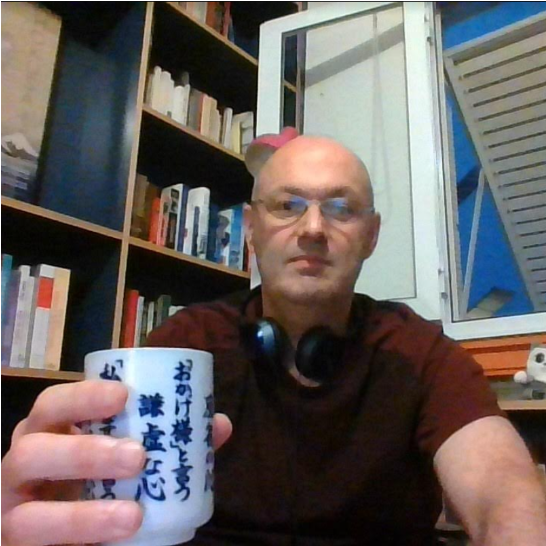
Academic Background
- 2015 Associate Professor. University of São Paulo (USP), Brazil
Title: Body and Purpose in the Age of the Illustration - 2018 Post-Doctoral Degree at the University of Edinburgh, Scotland
- 2014 Post-Doctoral Degree at the University of Paris I, Panthéon-Sorbonne, France.
- 2005 Post-Doctoral Degree at the University of São Paulo
- 2002 PhD in Philosophy at the University of São Paulo
Title: Immanence and Purpose in Shaftesbury’s Philosophy
Supervisor: Prof. Maria Lúcia Mello e Oliveira Cacciola - 1997 Master’s Degree in Philosophy at the University of São Paulo
Title: The finitude of reason in Kant's practical philosophy
Supervisor: Prof. Maria Lúcia Mello e Oliveira Cacciola - 1994 Bachelor’s Degree in Philosophy at University of São Paulo
Current Research
The constitution of positive knowledge in the 18th century
We aim to examine the constitution of some sciences consecrated in the 19th century, from what we could call conceptual residues of the philosophy of the Enlightenment era, mainly in its empiricist inspiration, that is, formed by authors who inherit concepts and problems posed by Locke in the Essay on Human Understanding (1690). It is not a matter of exhausting both the authors and the subjects, a very rich period in the history of philosophy, but of extract from it, according to the intentions that permeate research. We divide the chosen authors from certain thematic research lines, to be obeyed throughout the project: 1) Hume and the Scots (history, political economy); 2) Condillac and the Idéologues (language); 3) The Encyclopaedia and natural history (physiology, comparative anatomy); 4) Biology: Kant and the transcendental. There is no pretension to unify these fields of study, for such unity is precisely one of the problems to be investigated (thus distrusting Foucault’s and others’ assertions about it). It is intended only to pursue these themes (in study groups, courses and colloquia, and also in scientific production) in order to verify how, in the respective fields, the same movement is observed: the constitution of new sciences, which inherit concepts and problems, but also, and perhaps most importantly, modes of thinking established and problematized by philosophical reflection. There are possible relationships among suggested lines of research: political economy refers to physiology; language, history, and so on. These relations, which may seem unusual, will serve to illuminate connections not always recognized among the sciences later established from this knowledge.
Anthropology and History in the Century of Lights
One of the most immediate results of the questioning of metaphysics as a science in the Enlightenment is the discovery or invention of a new branch of knowledge: the human sciences (also called “social”). The purpose of the research is to investigate the constitution and articulation of these sciences by examining the conflict between history and anthropology, a traditional discipline that is redefined as a science of human nature, a nascent discipline, which disputes the terms in which history circumscribes its object, man. Taking as a point of departure vigorous reflections on contemporary anthropologists (Lévi-Strauss, Evans-Pritchard), the project returns to the eighteenth century and focuses on the study of authors who were involved in the struggle for the hegemony of new knowledge (Hume, Smith, Ferguson and other Scots, Rousseau, Condillac, Kant, Herder, and Idéologues), in order to find in them the formulation of problems hitherto relevant to the humanities. Research privileges the question of language, from which, at the age of the illustration, the nature, scope and limits of new types of knowledge are defined.

